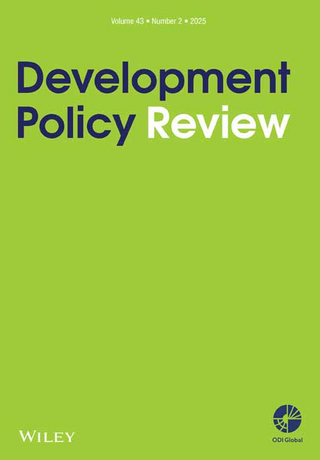
Why do bureaucrats want mandatory training? A conjoint mixed-methods analysis of individual learning preferences in German, Norwegian, and South Korean donor agencies
Tangianu, Alessandra / Daniel E. Esser / Heiner JanusExternal Publications (2025)
in: Development Policy Review 43 (2), article e70003
DOI: https://doi.org/10.1111/dpr.70003
Open access
Individual knowledge and professional learning among donor-agency bureaucrats play a decisive role in the design and implementation of development interventions. Understanding how to provide optimal training curricula for their staff is key for these bureaucracies' effectiveness as central organizational actors in the international development field. We analyse individual preferences for professional learning pathways in three bilateral donor-agency bureaucracies—the German Federal Ministry for Economic Cooperation and Development (BMZ), the Korea International Cooperation Agency (KOICA), and the Norwegian Agency for Development Cooperation (Norad)—to understand determinants of decision-making and opportunities for improvement. We ask: how do bureaucrats in these organizations assess different options for knowledge acquisition and learning?

